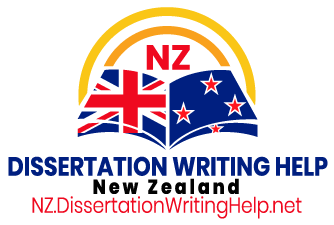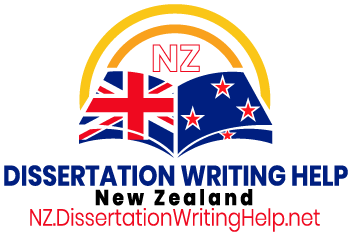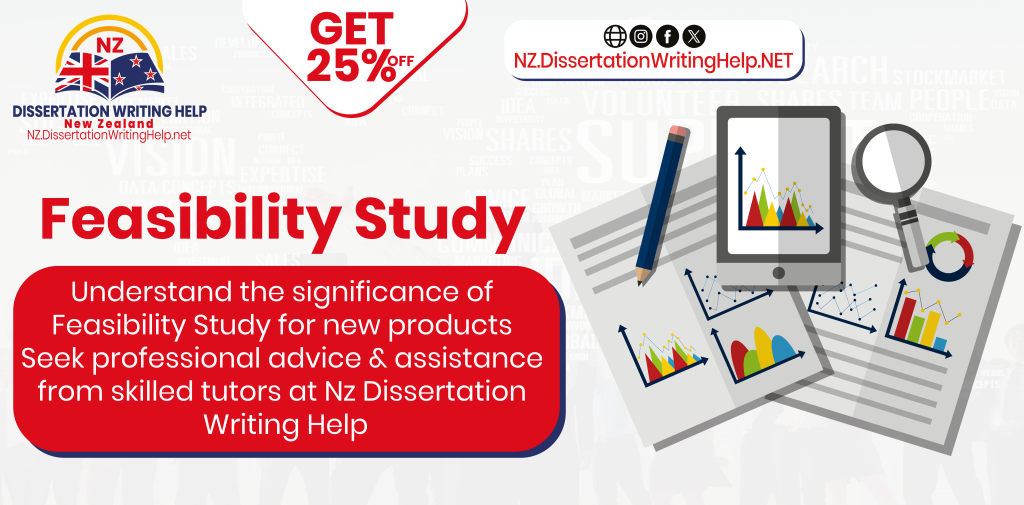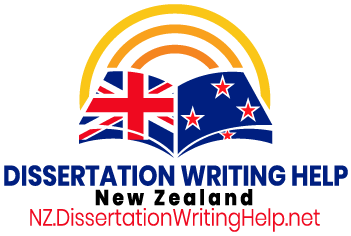Feasibility Study for a New Product: An Essential Guide
When introducing a new product, there is a method called the Feasibility Study, which can make or break your business. At Nz Dissertation Writing Help, we value the aspects of research and analysis. In this blog, let’s discuss what a Feasibility Study is and how it can help your business.
What is a Feasibility Study?
Feasibility Study means an evaluation of the viability of a given course of action. It looks at different aspects to decide whether it is feasible to come up with a new product and bring it to market. The study assesses technical, economical, legal, operational, and scheduling factors to give a balanced analysis.
Why Conduct a Feasibility Study?
A Feasibility Study assists companies in preventing costly blunders and guarantees that they only take on profitable ventures. It offers the enhanced vision of possible gains and losses, thus enabling people to make the right decisions.
1. Risk Assessment: Examines possible problems and ascertains the threats.
2. Resource Allocation: Defines the resource needed and makes sure that such resources are at hand.
3. Market Analysis: Applies an evaluation of the market needs and the competitors.
4. Financial Evaluation: Is responsible for cost control and prediction of income.
5. Project Viability: Provides verification of the project, technical and operational aspects.
STEPS IN CARRYING OUT A FEASIBILITY STUDY
Our strategy at Nz Dissertation Writing Help is step by step to make sure that our clients achieve a comprehensive Feasibility Study.
1. Preliminary Analysis
- Describe the boundaries or the context of the project as well as its goals and purpose.
- Invest in a market feasibility survey.
- Determine threats and risks to the process.
2. Market Research
- Determine regions that are in high demand for the product and any changes in the market.
- Analyze the competition.
- Define target customer segments and their requirements.
3. Technical Feasibility
- Consider the technical aspects and possibilities and the obstacles they create.
- Determine the resources and technology needed to support the strategic plan.
- A critical analysis of the production and development phase.
4. Financial Feasibility
- Assess the necessary investment for the project and the project’s potential revenue.
- Discuss funding opportunities and strategies for future financing.
- One should make use of what is commonly referred to as Cost-Benefit Analysis.
5. Organizational Feasibility
- Evaluating the company’s capabilities to undertake the project.
- Analyze the effect of the project on existing operations.
- Determine staffing requirements and training required.
6. Legal and Regulatory Feasibility
- Consult the laws and the regulations that apply to the subject area.
- It is important to adhere to the prevailing standards of the various industries.
- Find out suspicious legal circumstances.
7. Evaluation Process and the Final Decision Making
- Gather all the information collected to prepare a report.
- Discuss the feasibility study with the audiences.
- Conclude and make a decision based on the recommendations provided at the end of the study.
Advantages associated with carrying out a Feasibility Study
A well-conducted Feasibility Study offers numerous benefits, including:
- Informed Decision-Making: Offers persuasive data that can help inform and shape key management strategies.
- Risk Mitigation: In addition, it defines the existing risks that may be encountered, in order to plan and propose methods of effectively handling them.
- Resource Optimization: Assures best utilization of the available resources leading to minimize wastage and inefficiencies.
- Investor Confidence: The one that shows a high level of planning, which in turns helps to build investor confidence & support.
- Project Success: Improves the potential of accomplishment of projects by eradicating chances of deviation from the planned goal.
Conclusion
Feasibility Study is a vital process in the process of new product development. It affords adequate appreciation of the opportunities and threats involved, enabling managers to arrive at sound decisions. At Nz Dissertation Writing Help, we offer our clients a full service of Feasibility Studies to make the projects feasible and ready for the challenges. For more information, visit our website at nz. dissertationwritinghelp. net
When it comes to Feasibility Study, you can lay a strong foundation for producing highly viable and profitable products once you enter the business arena. Let Nz Dissertation Writing Help assist you in this crucial process, giving you expert advice and feedback throughout the process.







